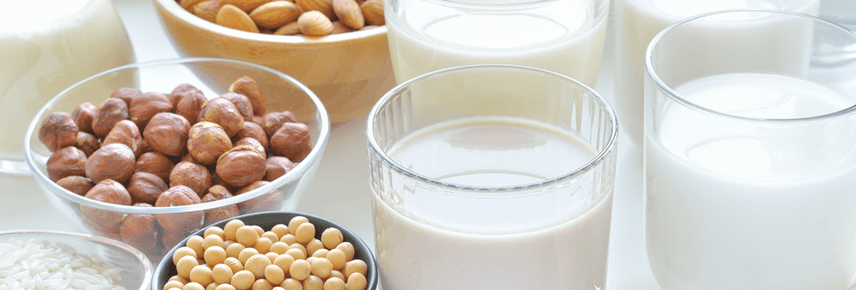
Exhaustion, mouth ulcers, pins and needles: could you be low in vitamin B12?
Eliza Baird APD
Vitamin B12 is an important nutrient that we all need to help our bodies make red blood cells, DNA and to supports our nerves, brain and immunity.
It’s the vitamin I get the most questions about because it can be tough to get enough B12, especially if you are vegetarian or vegan. This is because vitamin B12 is found almost exclusively in fish, meat, poultry, eggs, milk and other dairy products.
So, here are my answers to your vitamin B12 questions:
How can you get enough vitamin B12 if you are vegetarian or vegan?
There aren’t any plant foods that are naturally high in vitamin B12. It can be found in dairy and eggs for those following a lacto-ovo vegetarian diet. However, if you don’t have enough of these foods regularly, or if you are following a vegan diet, it is important to get vitamin B12 from fortified food products.
Vitamin B12 is often found in:
- Fortified plant-based milks
- Formulated meal replacement shakes
- Some yeast spreads
- Fortified meat alternatives
Look at the nutrition information panel and ingredients list to check vitamin B12 is added.
What are the warning signs of being low in vitamin B12?
Signs you may be low in vitamin B12 can be slow to develop and appear gradually, as our bodies’ stores are drained. Not getting enough vitamin B12 can lead to megaloblastic anaemia and nerve damage. Signs of vitamin B12 deficiency can include:
- Fatigue
- Mood changes including depression and irritability
- Confusion and memory issues
- Shortness of breath
- Tummy troubles such as diarrhoea or loss of bladder control
- Sore tongue or mouth ulcers
- Pale skin
- Heart palpitations
- Issues with vision
- Muscle weakness
These symptoms are easy to pass off as other health problems and are not exclusive to vitamin B12 deficiency, so you should always check with a health professional if you are experiencing any of these symptoms.
How does low vitamin B12 affect pregnancy or breastfeeding?
It If you are low in vitamin B12 while you are pregnant or breastfeeding, your baby is also likely to be low in B12. It’s important for babies and children to get enough B12 to support healthy growth and cognitive function. Signs and symptoms of B12 deficiency in infants and children can include:
- Irritability
- Failure to thrive
- Developmental delays
- Abnormal reflexes
- Paleness, jaundice and/or bruising
If you are at all concerned about how much vitamin B12 your child is getting speak with your GP, paediatrician or health practitioner.
Subscribe to Wholicious Living to stay up-to-date with the latest health and nutrition advice.
How much vitamin B12 do you need each day?
Adults should typically aim for 2.4µg per day, with pregnant women needing more at 2.6µg per day, and breastfeeding women needing as much as 2.8µg per day. Recommended intakes for all life stages can be found on the National Health and Medical Research Council’s site here.
How do you know if you need a B12 supplement?
Speak with your GP. If they are concerned, you may be low in vitamin B12 they’ll send you for a B12 blood test. Once you have the results, your GP will be able to determine if you need a supplement and explore the potential causes.
As well as a lack of vitamin B12, deficiency can be caused by digestive diseases, weight loss surgeries, medications, excessive alcohol intake or an autoimmune condition which prevents your body absorbing enough of the vitamin (known as pernicious anaemia).
Do you have a diet question? Or have you seen a nutrition study and wondered about what it means? We’d love to hear from you.
Contact our team of expert dietitians by using the free Ask a Dietitian service - email or call on 0800 673 392.

The latest nutrition advice, plus health and wellness tips delivered to your inbox monthly

